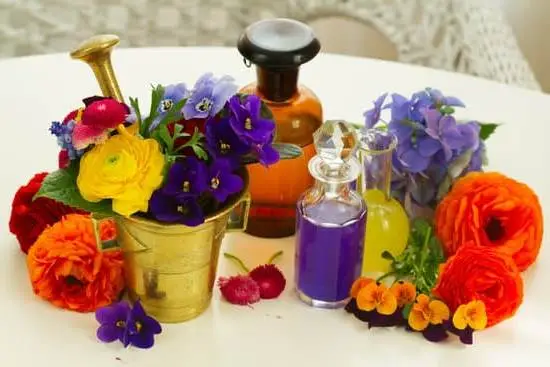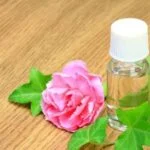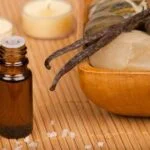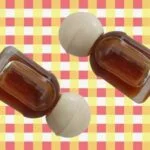Aromatherapy has become increasingly popular in recent years, with many individuals turning to essential oils to improve their well-being and promote relaxation. However, skepticism still surrounds the effectiveness of this practice. In this article, we will delve into the question: does aromatherapy really work?
Aromatherapy is a holistic healing technique that utilizes essential oils extracted from various plants to promote physical and emotional health. The use of scents for therapeutic purposes goes back centuries, but in modern times, it has gained traction as a complementary therapy. Despite its popularity, there is a degree of doubt surrounding aromatherapy’s efficacy.
The purpose of this article is to explore the science, history, personal experiences and research behind aromatherapy to better understand if it truly provides benefits for individuals seeking improved well-being. By examining the physiological effects of scent on the brain and delving into its cultural roots and historical usage, we aim to shed light on why aromatherapy has captivated so many people’s attention.
Join us as we navigate through the fascinating world of aromatherapy, addressing both its potential psychological and physical benefits while also exploring skeptics’ critiques. Along the way, we will consider individual variations in response to different scents and highlight personal testimonials alongside scientific research. By examining all angles and encouraging thoughtful consideration, we hope to provide readers with a comprehensive understanding of whether aromatherapy really works.
Understanding the Science behind Aromatherapy
Aromatherapy is a practice that harnesses the power of scent to promote physical and emotional well-being. But how does it actually work? In order to understand the science behind aromatherapy, it is important to delve into the physiological effects of scent and its impact on the brain.
When we inhale a scent, it travels through the nose and interacts with olfactory receptors, which are specialized cells in our nasal cavity. These receptors send signals to the olfactory bulb, which is located in the limbic system of the brain. The limbic system plays a crucial role in processing emotions and senses, which explains why certain scents can evoke strong emotional responses.
The theory behind how essential oils interact with the body is twofold. First, some researchers speculate that the chemical components of essential oils may directly affect our body’s physiological systems. For example, lavender oil has been found to contain compounds that have sedative properties, explaining its calming effects on individuals who use it for relaxation or sleep.
Secondly, there is also evidence to suggest that aromatherapy works through indirect mechanisms. The inhalation of pleasant scents can trigger a cascade of neurochemical reactions in the brain, causing the release of feel-good neurotransmitters like serotonin and endorphins. This can lead to an overall sense of well-being and improved mood.
While these physiological processes help us understand some of the underlying mechanisms behind aromatherapy’s effects, it is important to note that further research is needed to fully comprehend how essential oils work on a molecular level and how they interact with specific bodily systems.
Examining the History and Cultural Roots of Aromatherapy
Aromatherapy, as a practice, has deep historical and cultural roots that date back to ancient civilizations. Although it has gained popularity in recent years, its origins can be traced back thousands of years. Understanding the history and cultural significance of aromatherapy can shed light on how different societies have utilized scent for physical and emotional well-being.
Ancient civilizations such as the Egyptians, Greeks, and Chinese were known to incorporate essential oils and aromatic substances into their daily lives. The Egyptians used aromatic herbs and resins in religious rituals, cosmetics, and embalming practices. They believed that these fragrances had magical properties that could purify the body and soul.
Similarly, the Greeks embraced the concept of using scented plants in medicinal treatments, with renowned physicians like Hippocrates advocating for their use. In China, aromatherapy was a part of Traditional Chinese Medicine (TCM), where certain scents were used to balance qi (life force) or to treat specific conditions.
Throughout history, various cultures have also developed their own unique approaches to aromatherapy. For example, Ayurveda, an ancient Indian holistic healing system, incorporates aromatherapy as one of its key components. Ayurvedic practitioners utilize essential oils derived from plants in massages and herbal treatments to promote harmony between mind, body, and spirit.
The cultural beliefs surrounding aromatherapy’s effectiveness are diverse as well. In some cultures, certain scents are associated with spiritual healing or purification rituals. For example, burning incense or using sacred oils during religious ceremonies is prevalent in many traditions. In other cultures, essential oils are integrated into everyday life for their perceived health benefits.
| Region | Aromatherapy Practices |
|---|---|
| Egypt | Used aromatic herbs and resins in religious rituals and embalming practices |
| Greece | Incorporated scented plants in medicinal treatments, following the advice of renowned physicians like Hippocrates |
| China | Integrated aromatherapy into Traditional Chinese Medicine to balance qi (life force) or treat specific conditions |
| India (Ayurveda) | Incorporated essential oils derived from plants into massages and herbal treatments for holistic healing |
Understanding the history and cultural roots of aromatherapy highlights its enduring presence throughout human civilization. It demonstrates that the use of scents for wellness is not a passing trend but an age-old practice that continues to resonate with people across cultures. By recognizing these historical and cultural connections, individuals can develop a deeper appreciation for aromatherapy’s potential benefits and incorporate it into their own holistic well-being practices.
Exploring the Psychological Benefits of Aromatherapy
Aromatherapy is often associated with promoting emotional well-being and improving mood. This section will further explore the psychological benefits of aromatherapy, providing an analysis of studies and research supporting its use in this area.
Relaxation and Stress Reduction
Many studies have found that aromatherapy can be effective in promoting relaxation and reducing stress. The inhalation of certain essential oils has been shown to activate the olfactory system, which then communicates with the limbic system in the brain. The limbic system plays a crucial role in regulating emotions and is closely connected to the autonomic nervous system, which controls our bodily functions.
One study published in the Journal of Complementary Therapies in Medicine found that inhaling lavender essential oil reduced stress levels and improved mood among participants. Another study published in Phytotherapy Research showed that inhaling bergamot essential oil lowered cortisol levels, a hormone closely linked to stress responses. These findings suggest that specific scents can have a calming effect on both mind and body.
Scent-Emotion Connection
Another way aromatherapy can benefit psychological well-being is through its ability to evoke positive emotions through scent. Our sense of smell is closely tied to our emotions, as certain smells can trigger vivid memories or associations. Aromatherapy takes advantage of this connection by utilizing scents that are known to promote feelings of happiness, relaxation, or alertness.
Research published in Chemical Senses demonstrated how different scents affect mood and emotions differently. For example, citrus scents like lemon or orange were found to be uplifting and energizing, while floral scents like rose or jasmine induced a sense of calmness and relaxation. These findings highlight the potential of aromatherapy to positively impact our emotional state.
Overall, numerous studies suggest that aromatherapy has psychological benefits including promoting relaxation, reducing stress levels, improving mood, and evoking positive emotions. By harnessing the power of scent, aromatherapy has the potential to enhance emotional well-being and contribute to a more balanced state of mind. However, it is important to note that individual responses to scents may vary, and personal preferences should be taken into account when utilizing aromatherapy for psychological benefits.
Investigating the Potential Physical Health Benefits of Aromatherapy
Overview of Studies and Evidence
There is a growing body of research suggesting that aromatherapy may have potential physical health benefits. Numerous studies have been conducted to investigate the effects of essential oils on various physical ailments and conditions. These studies provide valuable insights into the potential efficacy of aromatherapy in promoting physical well-being.
One study published in the European Journal of Integrative Medicine found that inhaling lavender oil can significantly reduce the severity of migraine headaches and improve associated symptoms such as nausea and sensitivity to light and sound. Another study conducted at the University College Hospital in London found that when patients with chronic obstructive pulmonary disease (COPD) received inhalation therapy with eucalyptus essential oil, they experienced improvements in lung function and reported reduced breathlessness.
Possession of Antimicrobial and Anti-inflammatory Properties
Certain essential oils have been found to possess antimicrobial and anti-inflammatory properties, which could explain their potential effectiveness in treating physical ailments. For example, tea tree oil has been shown to exhibit antimicrobial activity against various microorganisms, including bacteria, viruses, and fungi. This suggests that it may be useful in preventing or treating infections.
In addition to its antimicrobial properties, some essential oils also exhibit anti-inflammatory effects. A study published in the International Journal of Molecular Sciences found that both frankincense and myrrh essential oils demonstrated potent anti-inflammatory activity by inhibiting various inflammatory markers. This indicates their potential benefits in reducing inflammation-related conditions like arthritis or skin irritations.
Specific Conditions where Aromatherapy May Be Beneficial
Aromatherapy shows promise as a complementary therapy for a range of specific physical conditions. For instance, research has suggested that peppermint oil may help alleviate symptoms associated with irritable bowel syndrome (IBS), such as abdominal pain and bloating. Similarly, studies have indicated that inhaling lavender oil could aid in improving sleep quality and reducing insomnia symptoms.
Moreover, eucalyptus oil has been found to have benefits for respiratory health. It may help ease congestion and clear mucus, making it beneficial for individuals with respiratory conditions like bronchitis or sinusitis. Additionally, some essential oils, such as chamomile, have been studied for their potential analgesic effects and use in pain management.
While the research on the physical health benefits of aromatherapy is still developing and more robust studies are needed to establish definitive conclusions, these preliminary findings suggest that there is potential efficacy in incorporating aromatherapy as part of an integrative approach to physical well-being.
Addressing the Skepticism and Critiques of Aromatherapy
Aromatherapy, like many alternative therapies, has faced its fair share of skepticism and critiques. While some individuals swear by its effectiveness, others remain skeptical of its claims. This section will delve into the arguments against the effectiveness of aromatherapy and provide an analysis of conflicting research findings.
One of the main critiques of aromatherapy centers around the lack of scientific evidence supporting its claims. Critics argue that most studies conducted in this field are small-scale, have methodological limitations, or lack placebo control groups. This raises concerns about the reliability and validity of the research conducted thus far. Additionally, there is a lack of standardized practices and measurements in aromatherapy research, making it difficult to draw definitive conclusions about its efficacy.
Another criticism often raised is the placebo effect. Skeptics suggest that any positive effects experienced by individuals who use aromatherapy may be attributed to a placebo response rather than actual therapeutic benefits from essential oils. The placebo effect refers to the phenomenon where a person experiences improvements in symptoms due to their belief in receiving treatment, regardless of whether the treatment itself has any physiological effect.
Conflicting research findings also contribute to skepticism surrounding aromatherapy’s effectiveness. Some studies have reported significant positive effects on various physical and psychological conditions when using essential oils, while others find little to no effect beyond a placebo response. These discrepancies create uncertainty regarding whether any observed benefits are directly related to aromatherapy or simply due to other factors.
It is important to note that addressing these skeptics and critiques is crucial in establishing a balanced perspective on aromatherapy’s potential benefits. While it is imperative that further rigorous scientific research be conducted to strengthen our understanding of aromatherapeutic interventions, it is equally essential not to dismiss personal experiences entirely. By considering both scientific evidence and individual testimonials, readers can form their own informed opinions on whether aromatherapy works for them personally.
Understanding the Importance of Individual Variations in Aromatherapy’s Efficacy
Aromatherapy is not a one-size-fits-all practice, as individuals may respond differently to various scents and essential oils. Understanding these individual variations is crucial in determining the efficacy of aromatherapy for each person. Factors such as personal preferences, experiences, and sensory sensitivities can profoundly influence how someone responds to different aromas.
1. Personal preferences: Just like with any other form of therapy or treatment, personal preferences play a significant role in the effectiveness of aromatherapy. Certain scents may evoke positive emotions and relaxation for some individuals while causing discomfort or unease for others. It is important for individuals to identify which scents resonate with them personally and bring them the most benefit.
2. Experiences and memories: The sense of smell is closely linked to memory and emotions. Different scents can trigger specific memories or associations for individuals based on their past experiences. For example, the aroma of lavender may remind someone of peaceful moments from childhood, while another person might have no particular connection to that scent. These personal experiences can shape an individual’s response to aromatherapy.
3. Sensory sensitivities: Individuals have different levels of sensitivity to smells and certain essential oils. Some people may be more sensitive to strong aromas or particular ingredients found in essential oils, while others may not experience any adverse reactions at all. It is essential for individuals to be aware of their own sensory sensitivities when engaging in aromatherapy, ensuring they choose scents that are enjoyable and well-tolerated.
Recognizing and acknowledging these individual variations highlights the importance of customized approaches in aromatherapy. What works for one person may not work for another due to these unique factors at play. Therefore, it becomes crucial to experiment with different blends of essential oils to find the ones that bring about the desired effects and provide maximum benefit.
Personal Experiences and Testimonials
One aspect that cannot be overlooked when discussing the efficacy of aromatherapy is the personal experiences and testimonials of individuals who have incorporated it into their daily lives. While scientific research provides valuable insights into the potential benefits of aromatherapy, it is important to consider real-life stories to gain a more holistic understanding of its effects.
Many people have reported positive results from using essential oils and engaging in aromatherapy practices. For example, individuals struggling with stress and anxiety have found relief through scents such as lavender and chamomile. These essential oils are believed to promote relaxation and calm the mind.
Furthermore, there are numerous accounts of individuals experiencing improved sleep quality after incorporating aromatherapy into their bedtime routine. Essential oils like cedarwood, valerian, and bergamot are known for their soothing properties, which can aid in creating a peaceful ambiance conducive to sleep.
| Name | Testimonial |
|---|---|
| Jennifer | “I suffered from chronic migraines for years until I discovered peppermint oil. Just a few drops on my temples provide instant relief and reduce the frequency of my headaches.” |
| Michael | “As an athlete, muscle soreness is a common occurrence. I started using eucalyptus oil in my post-workout routine, and it has significantly reduced my recovery time.” |
These testimonials offer firsthand accounts of how aromatherapy has positively impacted individuals’ well-being. While individual anecdotes should not be solely relied upon as evidence, they provide valuable insights into the potential benefits of aromatherapy and can serve as a starting point for further exploration.
It is important to note that personal experiences and testimonials should be considered alongside scientific research when evaluating the effectiveness of aromatherapy. The subjective nature of individual experiences, combined with the potential for placebo effects, highlights the need for a balanced approach that takes into account both empirical evidence and personal anecdotes. By considering all available information, individuals can make informed decisions about whether or not aromatherapy may be a beneficial addition to their wellness routine.
The Bottom Line
After exploring the science, history, psychological benefits, potential physical health benefits, skepticism and critiques, and individual variations of aromatherapy, the question still remains: does aromatherapy really work? The answer is not a simple yes or no. While some individuals swear by its effectiveness, others may not experience the same results. It is essential to approach aromatherapy with an open mind and understand that its efficacy may differ from person to person.
One key point to consider when assessing the efficacy of aromatherapy is the extensive body of research supporting its potential benefits for emotional well-being. Studies have shown that certain essential oils can promote relaxation, reduce stress levels, and improve overall mood. Additionally, scent has a strong connection to memory in the brain. Aromatherapy can evoke positive emotions and memories through the use of specific scents, offering a potential boost in psychological well-being.
Another area where aromatherapy shows promise is in its potential physical health benefits. Research suggests that certain essential oils possess antimicrobial and anti-inflammatory properties that may help alleviate symptoms related to various conditions such as headaches, insomnia, and respiratory issues. While further studies are needed to solidify these findings, there is evidence suggesting that aromatherapy could be a complementary therapy for certain ailments.
It is important to note that while there is scientific evidence supporting the efficacy of aromatherapy, there are also critiques against it. Conflicting research findings and limitations in study design contribute to skepticism surrounding its effectiveness. Additionally, the placebo effect could potentially influence individuals’ perception of their experience with aromatherapy.
Conclusion
In conclusion, the question of whether aromatherapy really works is a complex one that requires a nuanced understanding of its science, history, and individual variations in response. Throughout this article, we have explored the physiological and psychological effects of scent, delved into the rich cultural roots of aromatherapy, and examined both the potential physical health benefits and skepticism surrounding this alternative therapy.
While there is scientific evidence supporting the use of aromatherapy for emotional well-being and certain physical ailments, it is important to acknowledge that research in this field is still limited and conflicting. The placebo effect may also play a role in the perceived benefits of aromatherapy.
Nevertheless, personal experiences and testimonials from those who have found relief or improvement through aromatherapy should not be dismissed. It is crucial to consider these anecdotes alongside scientific research when forming our own conclusions.
Ultimately, embracing the power of scent and individualized well-being requires an open mind and willingness to explore how aromatherapy can fit into our own lives. Each person may respond differently to various scents and essential oils due to personal preferences, experiences, and sensory sensitivities. Customization is key when it comes to finding the right blends for each individual.
As we continue on our journey towards holistic well-being, incorporating all aspects of personal health and self-care, let us be open to the potential benefits that aromatherapy can offer. Embracing the power of scent means recognizing that what works for one person may not work for another, but through self-exploration and an openness to new possibilities, we can discover what brings balance and harmony to our own lives.
Frequently Asked Questions
Does aromatherapy have any real benefits?
Aromatherapy refers to the use of essential oils to promote physical and psychological well-being. While it is difficult to prove the effectiveness of aromatherapy due to the subjective nature of its benefits, there is some evidence to suggest that certain essential oils can have real benefits. For example, lavender oil has been shown to help reduce anxiety and improve sleep quality in some individuals.
Similarly, peppermint oil may provide relief from headaches and digestive discomfort. However, it is important to note that the results of aromatherapy can vary greatly between individuals, and it should be used as a complementary therapy rather than a sole treatment for medical conditions.
Does aromatherapy actually work for anxiety?
There is limited scientific research on the effectiveness of aromatherapy specifically for anxiety, but anecdotal evidence and some preliminary studies suggest that it may have potential benefits in reducing anxiety symptoms. Certain essential oils such as lavender, bergamot, chamomile, and ylang-ylang are often used in aromatherapy for anxiety due to their calming properties.
The inhalation of these oils through diffusers or by using them in a massage or bath can help induce relaxation and promote a sense of calmness. However, it is important to consult with a healthcare professional before relying solely on aromatherapy for managing anxiety as each individual’s response may vary.
How long does aromatherapy take to work?
The duration for aromatherapy effects to manifest depends on various factors such as the method of application, individual response, and the specific condition being addressed. Inhalation is one common method of administration in which essential oils are diffused into the air or directly inhaled from a bottle or tissue. In this case, some individuals report experiencing immediate effects like reduced stress or improved mood shortly after inhaling an aroma they find pleasant or soothing.
On the other hand, topical application through massage or baths may take longer for the effects to be noticed as absorption through the skin occurs more gradually over time. Overall, while some individuals may experience immediate benefits from aromatherapy, it can take varying amounts of time for individuals to fully experience the effects depending on the chosen method and personal response.

Are you looking for a natural way to improve your health and wellbeing?
If so, aromatherapy may be the answer for you.





